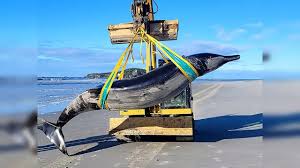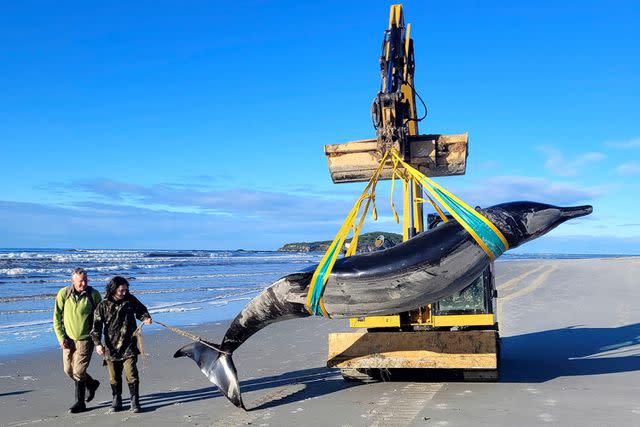Wellington: The carcass of a rare fish has been found on the beach of New Zealand. Scientists say that it may be the rarest whale fish in the world. It is a spade-toothed whale, a type of beaked whale. It is named after its teeth, which resemble the shape of a spade. Most of the information about their existence is based on a series of bones and tissues discovered over the decades and later sequenced, which shows a new shared DNA. This is a fish of such depth that it has never been seen alive by people. Only six specimens have been documented till date since the 1800s.
Experts are now trying to find out whether the 5 meter long fish is a rare whale or not. If so, this will be the first time scientists will dissect it. This can give unprecedented information to scientists. Hannah Hendrix, technical advisor for New Zealand’s Department of Conservation (DOC), said, ‘This whale species is extremely rare. So this opportunity can allow us to know more information about how and where the animal lived and what it ate?’
What is the information about the whale?
The department said, ‘If we are able to learn more about these aspects, we will also be able to know whether the species is in danger and what threats it may face.’ DOC announced that it had received a report of a whale carcass found near Taiari Mouth, a small village on the east coast of the South Island, on July 4. Experts inspected the carcass, after which scientists believed that the carcass was that of a male spade-toothed whale. However, other tests are needed to confirm this.
Fish kept in cold storage

DOC Coastal Otago Operations Manager Gabe Davis said, ‘This is very big from a scientific and conservation point of view. It’s sad that the fish is not alive and we couldn’t study it in its living state, but the best part is that the specimen is very fresh.’ The whale is currently kept in cold storage. In the meantime, genetic samples have been sent to the New Zealand Cetacean Tissue Collection at the University of Auckland. However, it could take months to analyse it.





